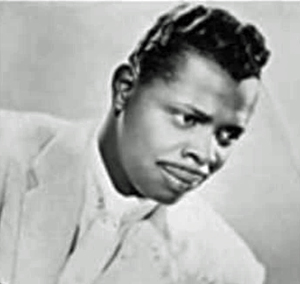Harold Burrage facts for kids
Quick facts for kids
Harold Burrage
|
|
|---|---|
 |
|
| Background information | |
| Born | March 30, 1931 Chicago, Illinois, U.S. |
| Died | November 26, 1966 (aged 35) Chicago, Illinois, U.S. |
| Genres | Rhythm & Blues, Soul |
| Occupation(s) | Singer, songwriter, pianist, record producer |
| Instruments | Vocal, Piano |
| Labels | Decca, Aladdin, States, Cobra, Vee-Jay, M-Pac, Paso, Foxy |
Harold Edwin Burrage (born March 30, 1931 – died November 26, 1966) was an American musician. He was a talented blues and soul singer, a great pianist, a songwriter, and even helped produce music recordings.
Early Life and Career
Harold Burrage was born in Chicago, Illinois. In the 1950s and 1960s, he often worked as a session musician. This means he played piano for other artists' recordings. He also recorded his own songs.
He released many songs on different record labels. These included Decca, Aladdin, States, and Cobra in the 1950s. Later, in the 1960s, he released music with Vee-Jay and M-Pac.
Harold Burrage played with many famous musicians. Some of the artists who played in his backing bands were Otis Rush and Willie Dixon. He also played piano for other musicians like Magic Sam.
Musical Success
Harold Burrage's first song was "Hi-Yo Silver." He wrote this song with Claude Trenier. It was released by Decca Records in 1950. Horace Henderson's band played music for this song.
His biggest hit song was "Got to Find a Way." This Chicago soul song came out in 1965. It became very popular and reached number 31 on the US Billboard R&B music chart.
Later Years
Sadly, Harold Burrage passed away the next year. He died in Chicago in 1966, when he was 35 years old. He died from heart failure. He was a big influence on other musicians, including Tyrone Davis.
Albums and Collections
Even after he passed away, Harold Burrage's music continued to be released. People could still enjoy his songs on special album collections.
- Pioneer Of Chicago Soul, P-Vine Special PLP 9003 (1979)
- Messed Up! The Cobra Recordings 1956-58, Westside WESM 634 (2001)
 | Chris Smalls |
 | Fred Hampton |
 | Ralph Abernathy |

